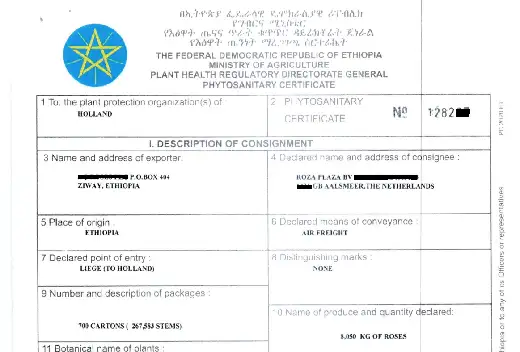TRACES (Trade Control and Expert System) is a tool of the European Union that ensures the traceability, safety, and compliance of food products, plants, animals, and derived products in intra-community trade.

In the application we present, the user uploads the documents for an entire shipment, which are then extracted, processed, supplemented with additional information from third-party sources, and sent to the TRACES application for the creation of specific certificates. Progress can be monitored live.
Since the EU portal currently does not offer an API, a bot was created that authenticates using two-factor authentication and fills in the data just like a human operator would. The application has been successfully operating since the pandemic.
Documents
Currently, phytosanitary certificates issued by multiple countries (each with different formats) are being used, along with transport documents (airway bill / AWB), either scanned or in digital form. Other documents can easily be added for processing.
Document Processing
Document processing for data extraction can be hindered by several factors such as:
1. Poor quality scans
2. Deviations from standards
3. Handwritten notes
4. Lack of correlation between documents and others.
To overcome these challenges, in addition to specific image processing techniques (for scanned documents), approaches involving ML (Machine Learning) and AI are used. The system operates with both local and outsourced ML/AI (via Google). The choice is made based on various technical and economic factors. Also, in rare cases where a necessary piece of information is completely missing, human operator assistance is required to complete just the missing piece through an interface that can also be accessed via mobile phone.
Data Preparation
As is probably already clear, extracting information from uploaded documents alone is not enough to achieve the goal—several additional processes are included, such as:
1. Checks and retrievals from third-party databases. Example: Phytosanitary certificates with plants contain Latin names (sometimes even common names or with typos), but TRACES requires the corresponding EPPO (European and Mediterranean Plant Protection Organization) codes.
2. Creation of a client-specific information cache: These details are typically extracted automatically from the client's TRACES account, enabling the app to validate and retrieve information.
3. Logical filters: Cross-checks of quantities, volume-to-weight reports, etc.
4. Additional completions: Separate scenarios for specific suppliers or special cases.
Submission in TRACES
The submission of data and creation of import documents in TRACES is handled by a bot that automates a browser. This was necessary due to the lack of an API interface (the usual method for software systems to communicate).
This approach also has the added benefit of allowing an operator (when present) to interact live with the system, enabling collaborative work alongside the bot.
Reporting
There are two types of reports:
1. Custom reports tailored to the client: These are often needed by customs brokers or transport companies and are based on complex cost calculations (e.g., applying a pricing plan depending on product category, time of day, holidays, etc.). These typically support client invoicing. 2. General reports: Based on various filters and data from the application (extracted information, data saved following TRACES submission). 3. Complete report of generated documents: All TRACES-generated documents combined into a single PDF or separated into a ZIP archive, filtered by time period, supplier, etc.
Licensing and Partnerships
Each client receives a separate instance of this application, customized according to their specific processes and needs. For more details, licensing, or partnership inquiries, please contact us via the contact form or by phone.